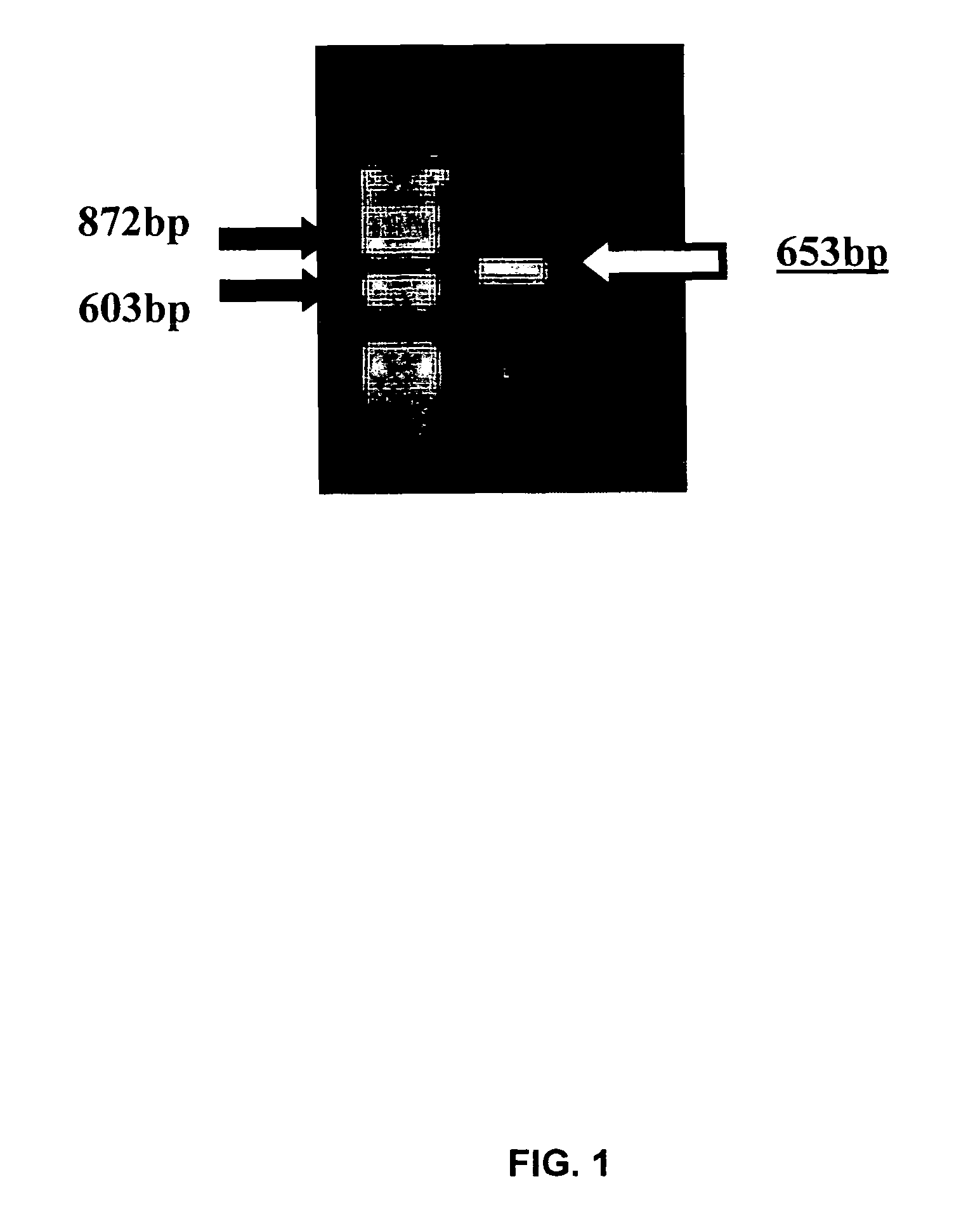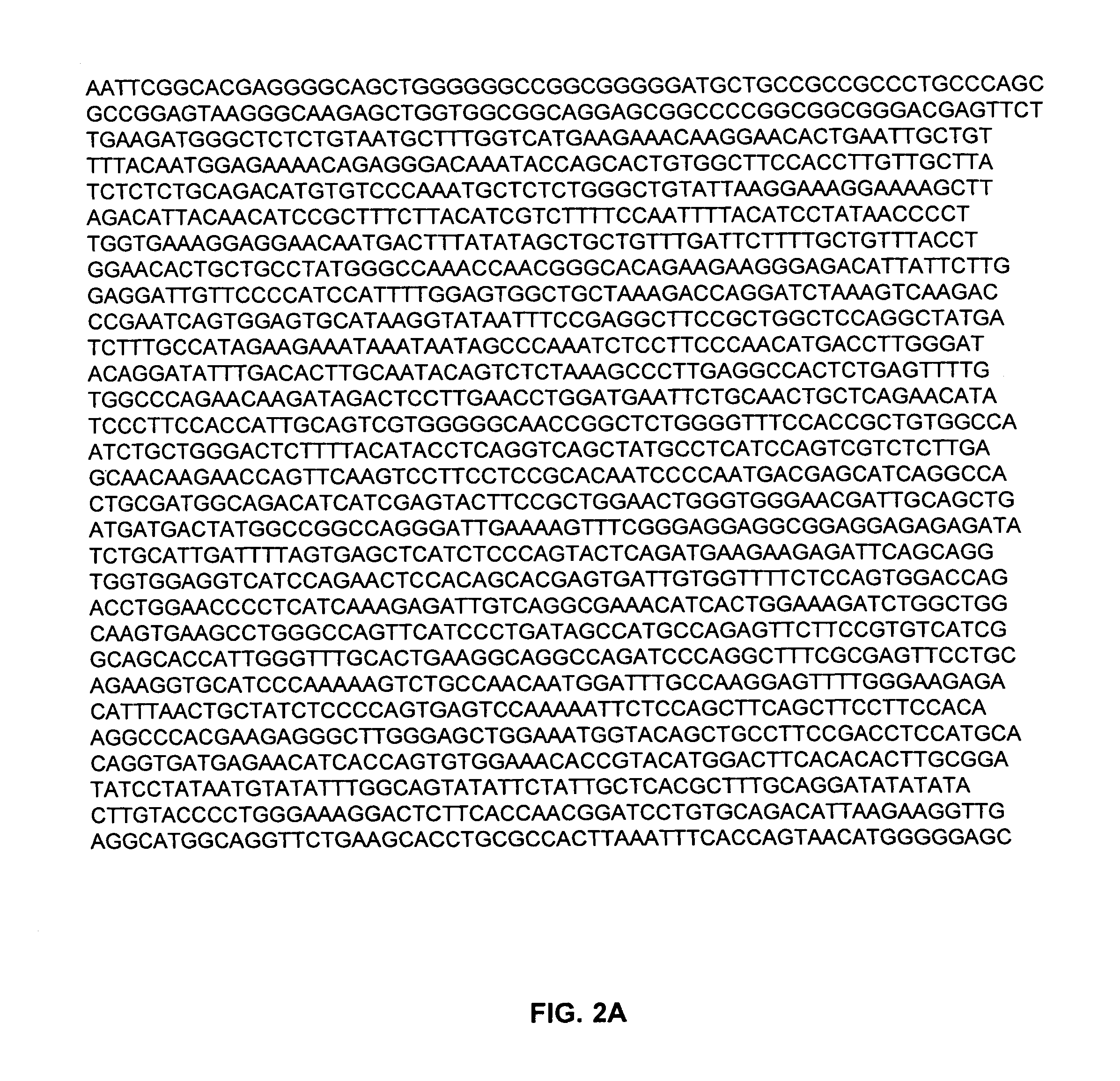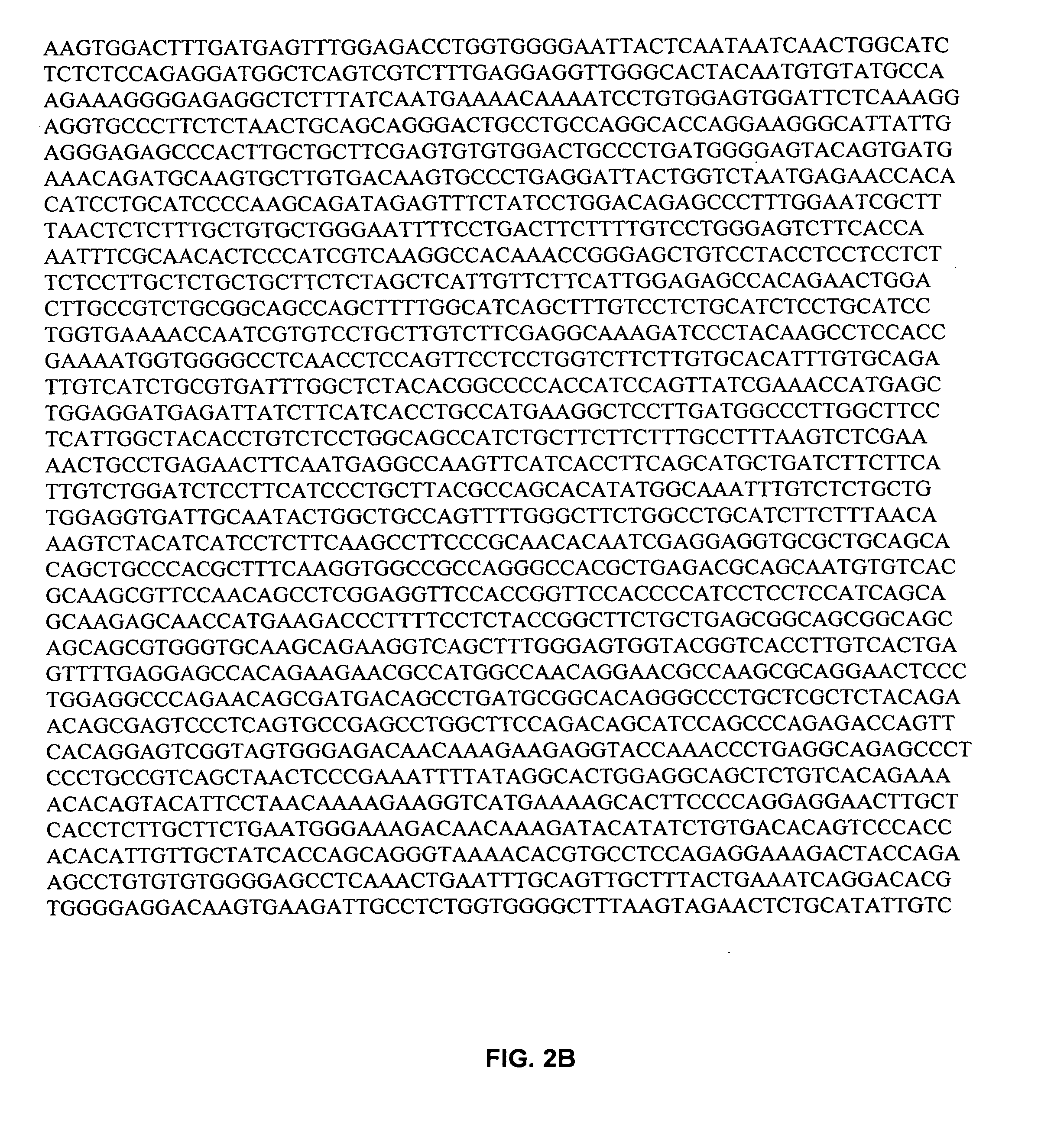Methods of nourishing animals
a technology of animal nutrition and animal body, applied in the field of methods of nourishing animals, can solve the problems of poor development and growth, morbidity and mortality of these animals, and achieve the effect of improving health and growth
- Summary
- Abstract
- Description
- Claims
- Application Information
AI Technical Summary
Problems solved by technology
Method used
Image
Examples
example 1
Identification, Isolation and Characterization of a CaSR Protein in the Jejunum of Chickens
Materials and Methods
[0185]Tissue Preparation
[0186]Gastrointestinal (i.e., duodenum, jejunum and ileum), kidney and brain tissues were harvested from 22 day old chickens (n=3), frozen on dry ice and stored at −80° C.
[0187]RNA Extraction
[0188]Total RNA was purified from the jejunum using STAT-60 (Teltest B, Friendswood, Tex.), and poly A+ mRNA was isolated using the Micro-FastTrack 2.0 Kit (Invitrogen, Carlsbad, Calif.).
[0189]Chick Jejunum cDNA Library Construction
[0190]cDNA was synthesized by reverse transcribing chick jejunum mRNA, prepared as described above. Selected cDNA fractions were ligated and packaged as ZAP libraries (ZAP-cDNA synthesis Kit and ZAP-cDNA Gigapack III Gold Cloning Kit, Stratagene, La Jolla, Calif.). Degenerate CaSR-specific DNA primers (dSK-F3: 5′-TGT CKT GGA CGG AGC CCT TYG GRA TCG C-3′ (SEQ ID NO:9); dSK-R4: 5′-GGC KGG RAT GAA RGA KAT CCA RAC RAT GAA G-3′ (SEQ ID NO:...
example 2
Chick Intestinal CaSR Protein Responds to Ca2+ Via Downstream Activation of the pERK Signal Transduction Pathway
Materials and Methods
[0198]Transfection of Chicken CaSR into HEK-293 Cells
[0199]HEK-293 cells were plated into 6-well plates so that the cells were 90% confluent at the time of transfection. The linearized and non-linearized plasmids were ethanol precipitated and quantified spectrophotometrically. A ratio of DNA to lipofectamine of 1:3.5 (4 μg of DNA and 14 μl Lipofectamine 2000) was used for the transfection procedure. To provide a negative control, only Lipofectamine was added to some HEK cells. After exposure to lipofectamine, hygromycin B (400 μg / ml was used to select for HEK cells that had been transfected since the plasmid containing the putative CaSR sequence also contained a hygromycin resistance element.
[0200]At the start of hygromycin selection, flasks were about 40% confluent. All flasks experienced a high percentage of die off cells. After an interval of 10 day...
example 3
CaSR mRNA and Protein are Expressed in the Intestine of Chickens During Various Developmental Stages
Materials and Methods
[0204]Northern Blot Analysis
[0205]Intestinal and kidney tissues were harvested from 3 several week old chicks and rinsed in RNAlater (Ambion) after harvest. Epithelial cells were scraped from the mucosal surface of each respective intestinal segment and transferred immediately to Stat 60. Total RNA was isolated from the prep on the same day. To isolate poly A+ RNA, the MicroPoly (A) purist kit (Ambion) was used and the resulting poly-A RNA was quantified and precipitated overnight for use in Northern blot analysis the following day. The mRNA was fractionated using the NorthernMax formaldehyde-based system and a 1% agarose gel that was electrophoresed at 120 volts for 1 hour and 50 minutes. Subsequently, the contents of the gel were transferred to a BrightStar membrane for 2.5 hours using a downward transfer assembly and probed using 32P-labeled CaSR cDNA cloned fr...
PUM
| Property | Measurement | Unit |
|---|---|---|
| time | aaaaa | aaaaa |
| pH | aaaaa | aaaaa |
| pH | aaaaa | aaaaa |
Abstract
Description
Claims
Application Information
 Login to View More
Login to View More - R&D
- Intellectual Property
- Life Sciences
- Materials
- Tech Scout
- Unparalleled Data Quality
- Higher Quality Content
- 60% Fewer Hallucinations
Browse by: Latest US Patents, China's latest patents, Technical Efficacy Thesaurus, Application Domain, Technology Topic, Popular Technical Reports.
© 2025 PatSnap. All rights reserved.Legal|Privacy policy|Modern Slavery Act Transparency Statement|Sitemap|About US| Contact US: help@patsnap.com



